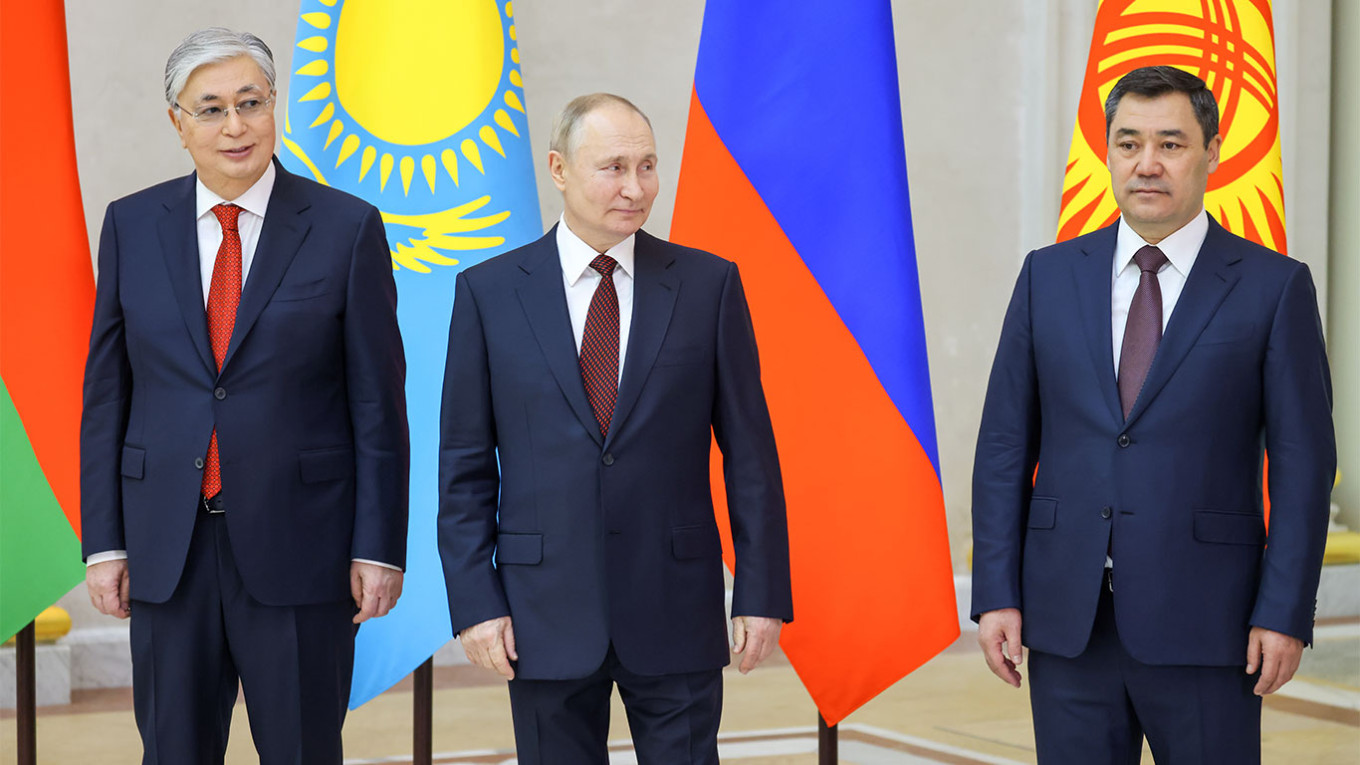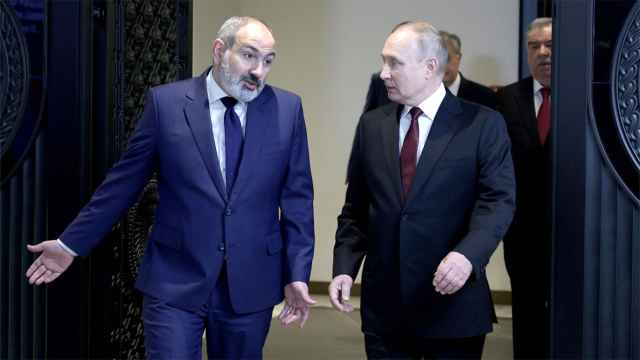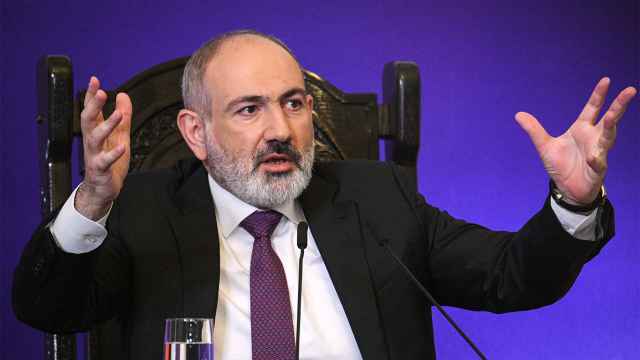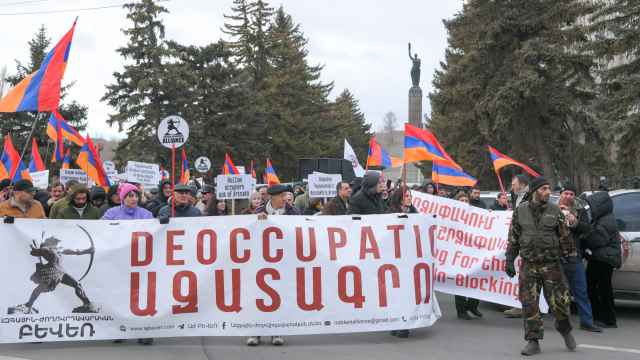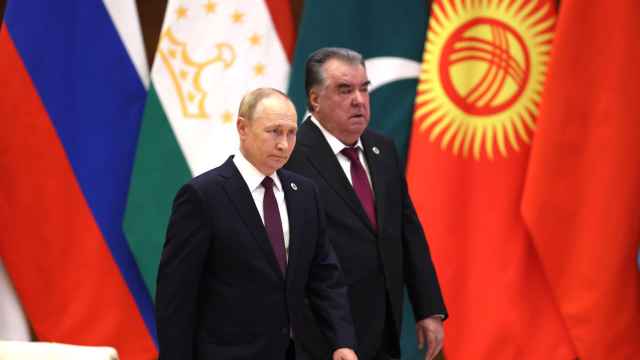Central Asia is becoming more authoritarian before our very eyes: after the power grab completed during the pandemic, the region’s elites are now introducing a series of measures designed to entrench their power for decades to come. Russia’s support may prove decisive in further strengthening this power.
In Kazakhstan, the regime led by Kassym-Jomart Tokayev used last month's parliamentary elections — in which no opposition parties and very few independent candidates were allowed to stand — to replenish its deputies in the legislature. While many new members of parliament were elected, they're unlikely to bring significant changes to Kazakhstani politics. The presidential party — recently renamed Amanat to minimize its many connections with former president Nursultan Nazarbayev — elected two-thirds of its members, confirming that Kazakhstan’s politics remain very much a regime monopoly.
The rejuvenation of parliamentary cadres completed the power consolidation strategy carried out by Tokayev and his associates through the constitutional referendum of June 2022, which reset presidential terms, and the presidential vote held in November 2022, which formalized the extension of the presidential mandate to the end of the 2020s.
Very similar dynamics are currently at play in neighboring Uzbekistan, where President Shavkat Mirziyoyev is approaching his term limit under the country’s constitution. Here, Mirziyoyev is now focused on extending his political power beyond the terms limits imposed by the constitution. Regime continuity is likely to be ensured through a referendum later this month, which will rewrite the constitution and allow Mirziyoyev to remain in power well beyond 2030.
Typically, though, Turkmenistan leads the way in updating Central Asia’s authoritarian playbook. In March 2022, the regime undertook a very delicate power transfer, which formalized the succession of Serdar Berdymukhamedov, the son of long-term leader Gurbanguly Berdymukhamedov, to the presidency. Due to Serdar’s relatively young age (he was 41 at the time of his election), the establishment of a dynastic presidency in Turkmenistan will likely see the Berdimuhamedov family controlling Turkmen politics well into the 2040s.
It is through a well-tested combination of propaganda, media repression, and the imprisonment of critics that the elites in all three countries will capitalize on the authoritarian regeneration achieved over the past year.
To my mind, however, there is another option available to these regimes if they are to strengthen their hold on power in the next decade and beyond. This option, as it stands, is situated within Eurasia’s shifting geopolitics.
An increasingly isolated Russian Federation, in fact, is bound to represent an invaluable source of support for Central Asia’s non-democratic leaders. Eurasia’s networks of authoritarian solidarity normally pivot on the Kremlin, as demonstrated by the rapid intervention of CSTO forces in Kazakhstan last year, when a contingent almost entirely formed of Russian military personnel shifted the balance on the ground in favor of Tokayev and his supporters. It was precisely the CSTO intervention that set the process of authoritarian regeneration recently completed in Kazakhstan into motion.
Crucially, the Russian invasion of Ukraine on Feb. 24, 2022, created opportunities for these solidarity networks to be developed further: it’s reasonable to expect the Kremlin will reward Central Asia for not denouncing its invasion of Ukraine with a series of policies designed to preserve non-democratic rule in Astana, Ashgabat, and Tashkent. While Mongolia is reportedly pursuing a policy of equidistance in the Ukrainian conflict with a view to shield its democracy from external pressures, the Central Asian states’ ambiguous stance on the invasion may in turn strengthen the region's authoritarian regimes.
Two recent events indicate that Russia could yet regain much of the relevance it appears to have lost in Central Asia in recent years by extending its authoritarian solidarity to the region’s leaders.
In his recent meeting with Chinese President Xi Jinping, Vladimir Putin pledged to prevent the outbreak of so-called “color revolutions” in Central Asia. Meanwhile, there is evidence of talks to expand trilateral energy cooperation between Russia, Kazakhstan, and Uzbekistan, with Russian reserves being used to compensate for the gas shortages caused by Astana and Tashkent’s disastrous energy policies.
There are therefore new opportunities for Russia to capitalize on the authoritarian consolidation completed in the region over the past year, which could allow Moscow to stage a remarkable comeback in Central Asia. Traditionally, the preservation of domestic power has constituted a key foreign policy objective for the Central Asian states, and Russia’s ability to act as a guarantor of the region’s renewed authoritarian stability may once again make the Kremlin fundamental to each regime’s survival mechanism.
A Message from The Moscow Times:
Dear readers,
We are facing unprecedented challenges. Russia's Prosecutor General's Office has designated The Moscow Times as an "undesirable" organization, criminalizing our work and putting our staff at risk of prosecution. This follows our earlier unjust labeling as a "foreign agent."
These actions are direct attempts to silence independent journalism in Russia. The authorities claim our work "discredits the decisions of the Russian leadership." We see things differently: we strive to provide accurate, unbiased reporting on Russia.
We, the journalists of The Moscow Times, refuse to be silenced. But to continue our work, we need your help.
Your support, no matter how small, makes a world of difference. If you can, please support us monthly starting from just $2. It's quick to set up, and every contribution makes a significant impact.
By supporting The Moscow Times, you're defending open, independent journalism in the face of repression. Thank you for standing with us.
Remind me later.



